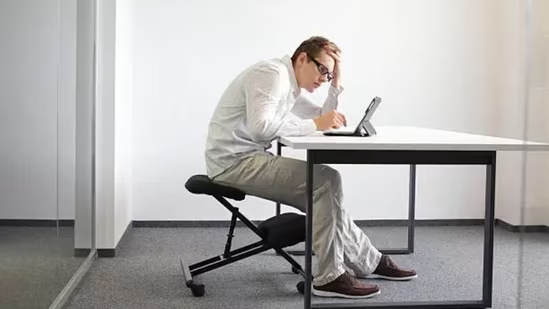12 september 2024 : Slouching, whether sitting or standing, can lead to a range of health issues, including spinal problems, back pain, and even a potbelly. Dr. Mazda K. Turel, a brain and spine surgeon at Wockhardt Hospitals, Mumbai Central, explains that slouching places excessive stress on the spine and muscles, potentially resulting in serious long-term health issues.
Spinal Misalignment:
Slouching disrupts the spine’s natural curve, causing misalignment that increases pressure on the vertebrae and intervertebral discs. This can lead to conditions like herniated discs and chronic back pain. Additionally, poor posture strains the surrounding muscles, ligaments, and tendons, which can cause muscle fatigue and discomfort.
Impact on the Nervous System:
Extended slouching can affect the nervous system as well. The spine safeguards the spinal cord, which relays signals between the brain and the body. Compromised posture may compress nerves, potentially causing symptoms such as numbness, tingling, or even reduced motor function in severe cases.
Reduced Oxygen Intake:
Slouching restricts lung expansion, decreasing oxygen intake and potentially impairing concentration and cognitive function. Over time, this poor posture can contribute to tension headaches and temporomandibular joint (TMJ) issues.
Addressing Slouching:
Dr. Turel emphasizes that improving posture and strengthening core muscles can significantly reduce these problems. If pain persists, seeking medical advice is crucial to prevent further spinal and nervous system damage. Simple posture adjustments today can help avoid more complex spinal issues in the future.

